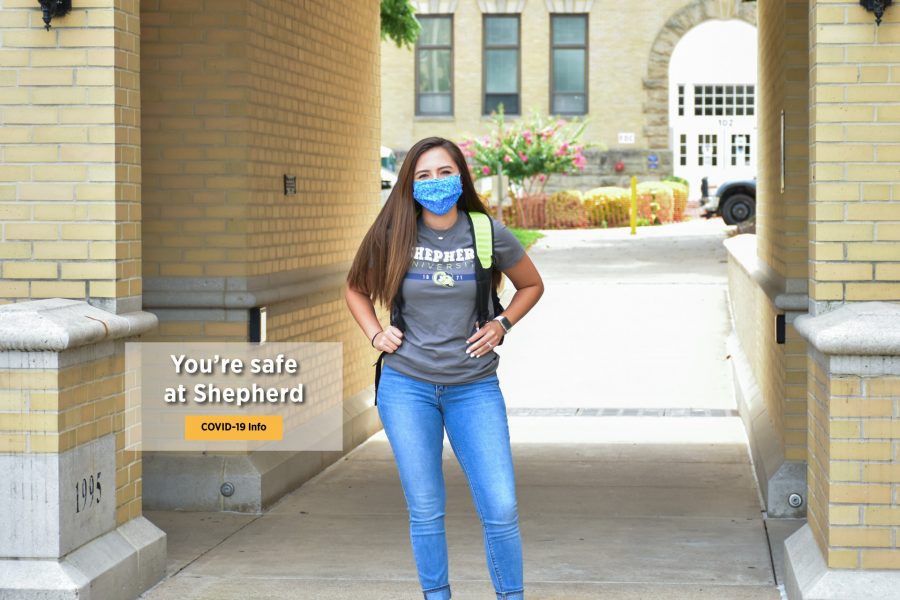SHEPHERDSTOWN — With an increase in COVID cases due to the Delta variant as well as nationwide vaccine hesitancy, Shepherd students and faculty face the uncertain reality of a COVID future.
When COVID first became a reality for Shepherd University in 2020, the leadership team had to quickly put together a task force to manage cases on campus and find a safe way to continue education. In the time since campus was first shut down, many hoped that the pandemic would no longer impact courses and student life. However, this is not the case as Shepherd enters the fall semester.
According to the latest update on Sept. 10 from the COVID-19 dashboard, Shepherd has 11 active COVID cases. These cases include both students and faculty. The COVID-19 dashboard is available as a resource to anyone who wants to keep updated on the cases and vaccination rates on campus.
Holly Frye, chief of the Campus Health Task Force, reflects that the pandemic experience has shown that Shepherd can persevere through difficult situations. However, Frye also notes that it is obvious that “everyone is exhausted from simply dealing with, and thinking about the pandemic.”
Despite this fatigue, it is important to continue following the protocol regarding COVID. This involves wearing a mask while indoors, reporting any COVID incidents, registering vaccines, and reporting for surveillance testing as necessary.
Shepherd is not currently requiring the vaccine, and there seems to be no immediate likelihood that it will change. Frye notes that the vaccine is the best protection against the disease and that the task force will “continue to highly recommend the vaccine” for students.
Shepherd is able to continue with an open campus at the current COVID levels. However, if the situation worsens, this may not be the case. As long as students and faculty continue to follow protocol, Shepherd can continue with in-person courses and activities. Frye explains that “it truly is up to each of us to do the right thing — whether we particularly like it or not — to keep everyone safe.”
